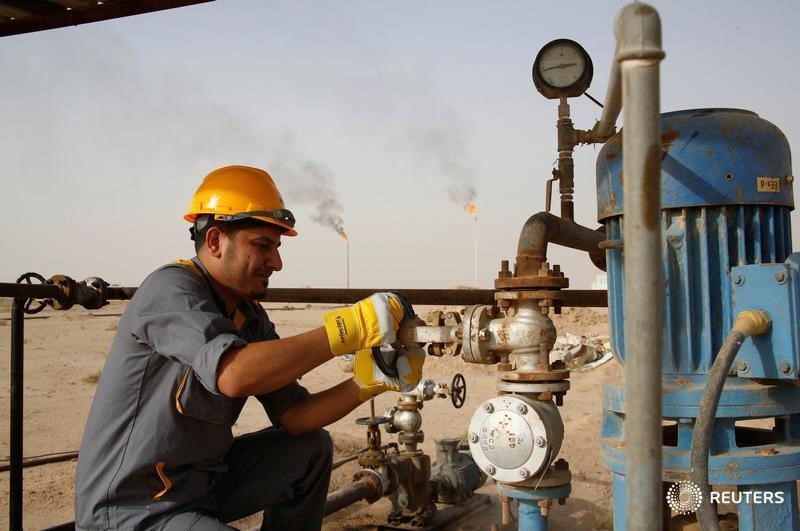Street Calls of the Week
By Peter Nurse
Investing.com -- Oil prices rose Tuesday, with traders expecting a group of top producers to continue to cautiously increase output in February following indications the Omicron Covid variant would have only a limited impact on demand.
By 9 AM ET (1400 GMT), U.S. crude futures traded 1% higher at $76.86 a barrel and the Brent contract fell 1%, to $79.75.
U.S. Gasoline RBOB Futures were up 1.3% at $2.2858 a gallon.
The Organization of the Petroleum Exporting Countries and its partners including Russia, a group known as OPEC+, are meeting Tuesday to decide upon future production levels.
They have been gradually increasing global supply, lifting its output target each month since August by 400,000 barrels per day as they unwind the record production cuts of 10 million barrels a day that were made in 2020 as the pandemic caused demand to slump.
OPEC+ played down the impact on demand from the Omicron variant in a technical report, saying it would be "mild and short-lived."
This view was backed up, in part, by comments from the World Health Organization Tuesday, which suggested the Omicron variant is affecting the upper respiratory tract and not the lungs, causing milder symptoms than previous variants.
“There is a growing belief that whilst the Omicron variant is more transmissible than previous variants, it is less deadly. This has helped ease some demand concerns, although we will need to see how governments around the world react as cases grow in their countries,” said analysts at ING, in a note.
“The recovery in the oil market, and the cautiously optimistic demand outlook suggests that OPEC+ will continue to increase supply.”
That said, while OPEC+ has increased its output target each month, a number of members have struggled meeting these targets. The International Energy Agency said last month these producers missed their targets by 730,000 barrels a day in October and by 650,000 barrels a day in November.
Helping the tone Tuesday was positive economic news out of Europe, a region that has been particularly hard hit by the Omicron variant.
German retail sales rose unexpectedly in November, lifting them to a record annual high, while unemployment in the Eurozone’s largest economy fell more than expected in December.
Additionally, French Finance Minister Bruno Le Maire said that the country's growth would be significantly higher this year than the government's current forecast of 6.25%.
Investors also await U.S. crude oil supply data from the American Petroleum Institute, due later in the day, for a guide of demand for the world’s largest energy consumer.
